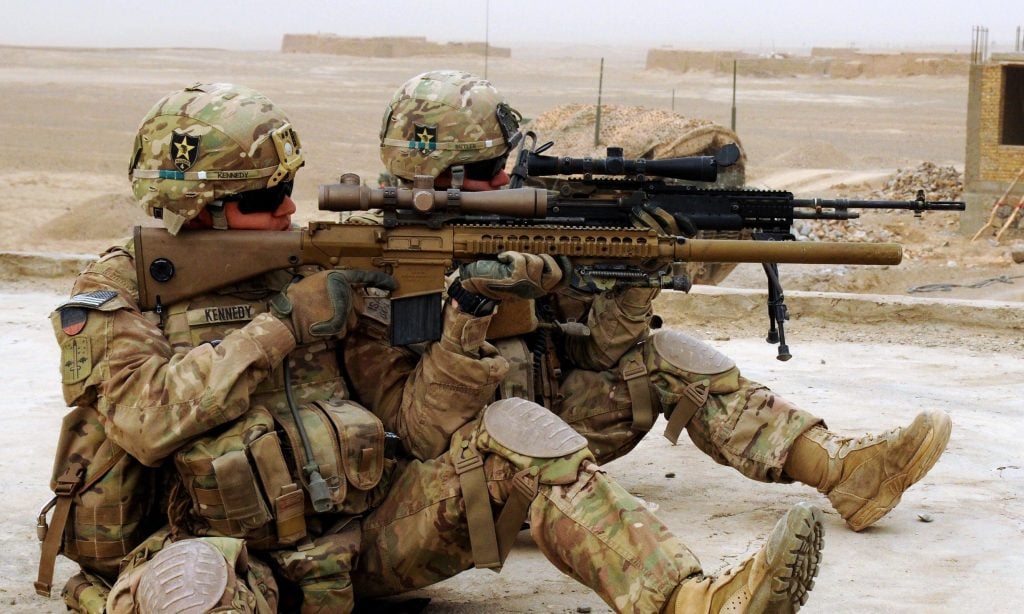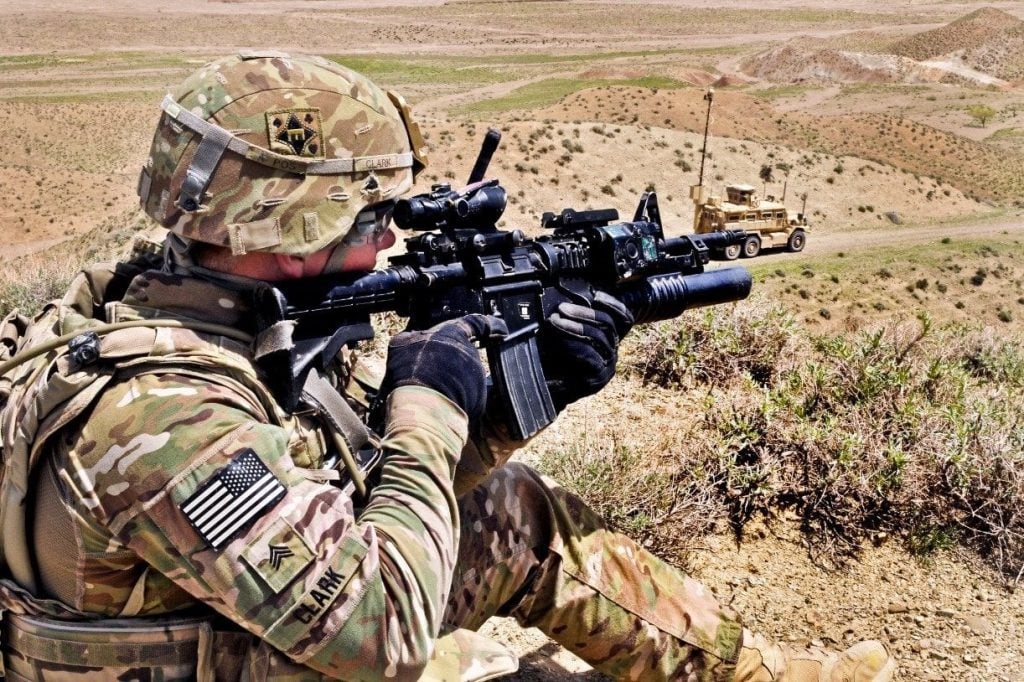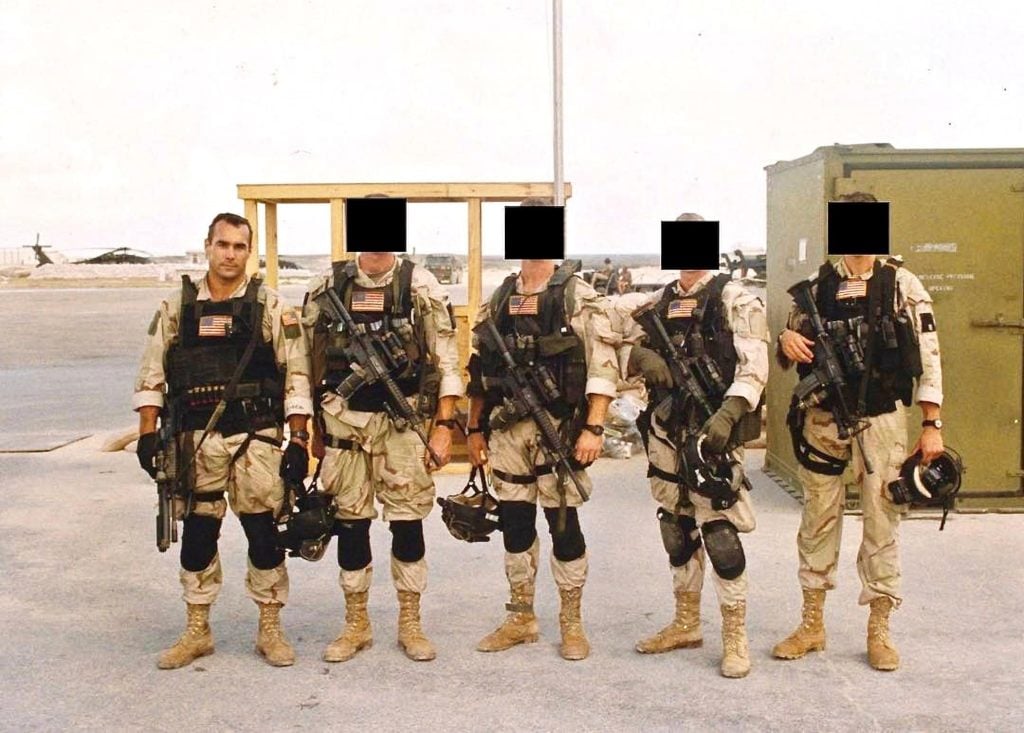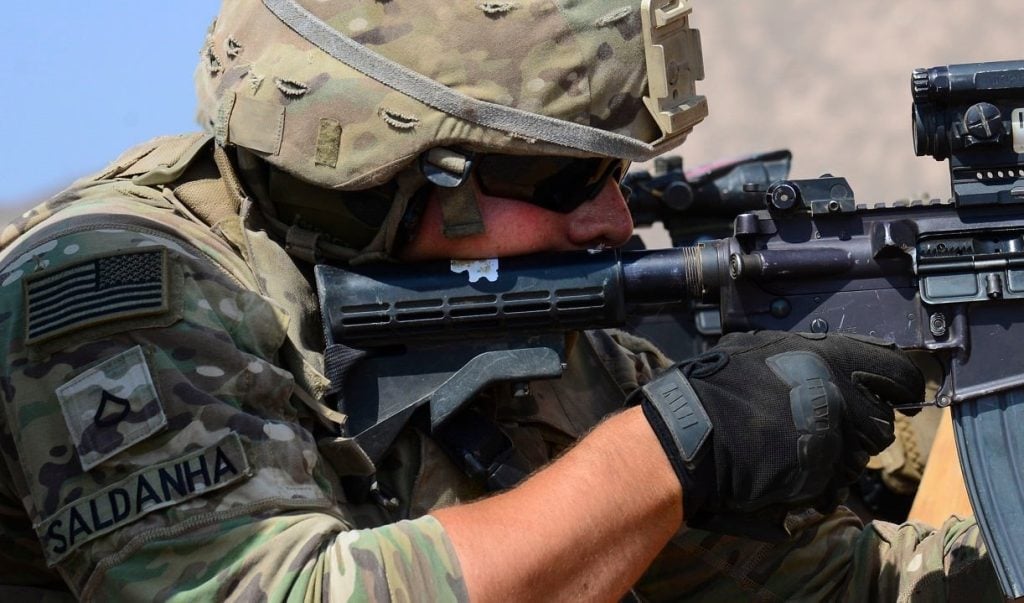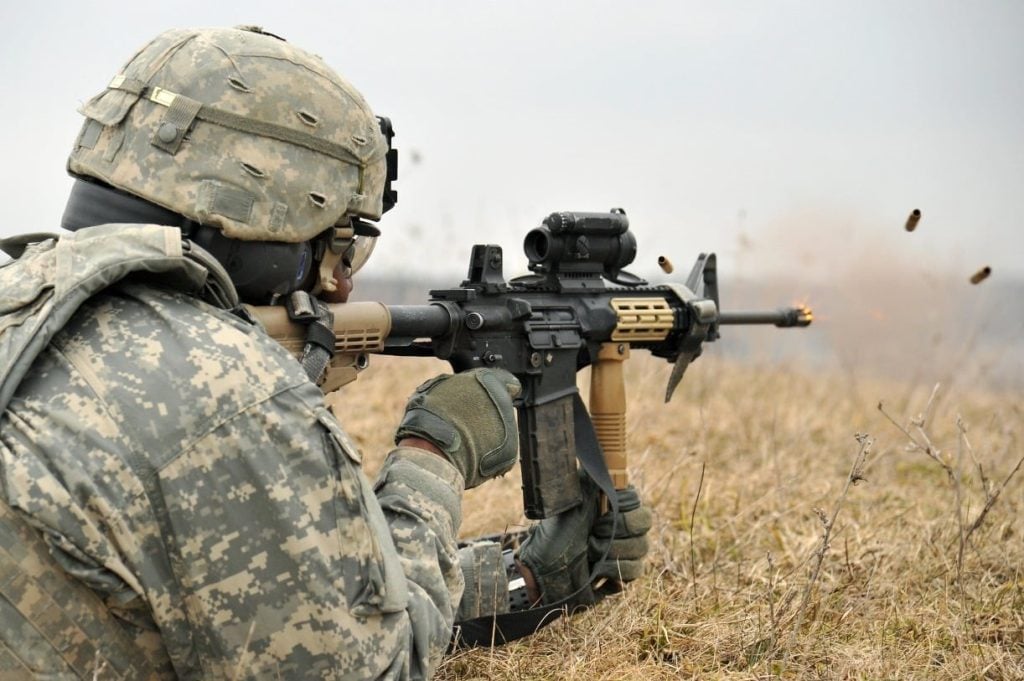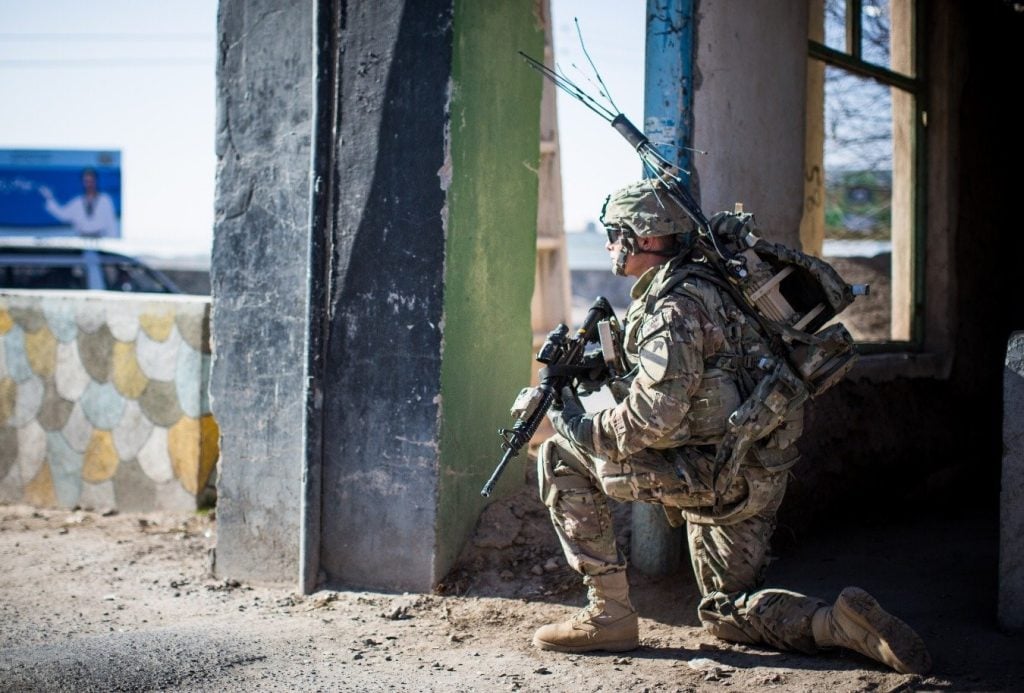The elite Delta Force, officially known as the 1st Special Forces Operational Detachment-Delta (1st SFOD-D), is a special operations unit of the United States Army, tasked with the critical mission of hostage rescue and counter-terrorism operations. As one of the most highly trained and specialized military units in the world, Delta Force undergoes rigorous and meticulous preparation to ensure their readiness for the most challenging real-life scenarios.
In this comprehensive article, we delve into the intricate details of How Delta Force Masters the Art of Hostage Rescue. From training in urban environments under the watchful eye of local law enforcement to meticulously orchestrating complex hostage-liberation scenarios, we uncover the dedication and expertise that make Delta Force a formidable force in the realm of special operations.
What Makes Today’s Armored Vehicles So Powerful?
Leveraging Local Law Enforcement Cooperation
One of the key aspects of Delta Force’s training regimen is the invaluable collaboration with local law enforcement agencies. Annually, the unit conducts training exercises in major metropolitan areas, where local authorities establish a “box perimeter” within which Delta Force enjoys the freedom to operate and fulfill their training objectives.
This partnership with city police departments is essential, as it allows Delta operators to immerse themselves in realistic urban environments, complete with the presence of civilians and the logistical challenges that come with operating in densely populated areas. The local law enforcement officers play a crucial role, not only in setting up security corridors and roadblocks but also in serving as roleplayers, portraying hostages, prisoners, and even terrorists.
Navigating the Legal Landscape
It’s important to note that the collaboration between Delta Force and local law enforcement is carefully orchestrated within the legal framework. The Posse Comitatus Act of 1878 strictly prohibits the direct involvement of the military in civilian law enforcement activities, and the Delta Force adheres to this law meticulously.
To ensure compliance, the local officers involved in the training exercises are off-duty and are compensated with time-and-a-half pay for their efforts. This arrangement not only maintains the necessary separation between the military and civilian spheres but also provides an attractive incentive for the law enforcement personnel to participate in these valuable training opportunities.
Crafting Realistic Hostage Rescue Scenarios
The presence of live roleplayers is a crucial element in Delta Force’s hostage rescue training. From simulated airplane hijackings with up to 200 roleplayers acting as passengers and crew to scenarios involving a diverse range of individuals, including men, women, children, and even individuals with disabilities, the Delta operators are exposed to the full complexity of real-life hostage situations.
The realism that these roleplayers bring to the training is irreplaceable, as it allows the Delta operators to hone their skills in identifying potential threats, searching and vetting individuals, and coordinating the rescue of hostages while ensuring the safety of all involved. The Delta Operations and Logistics managers responsible for managing these large groups of roleplayers deserve immense credit for their ability to orchestrate such intricate and realistic training exercises.
Mastering the Art of Crowd Control
Closely related to the use of roleplayers is the Delta Force’s expertise in crowd control. During hostage rescue operations, the operators often find themselves in situations where they must deal with a throng of people, including innocent bystanders, potential threats, and even the hostages themselves.
The Delta operators’ training in urban environments, coupled with the cooperation of local law enforcement, equips them with the skills and experience to effectively manage these complex crowd dynamics. From establishing security perimeters and roadblocks to methodically searching and vetting each individual, the Delta Force demonstrates its mastery in navigating the challenges posed by large groups of people during high-stakes rescue missions.
Leveraging Observational Learning from Law Enforcement
While the Posse Comitatus Act prohibits direct collaboration between the military and civilian law enforcement during combat or training missions, the Delta Force has found creative ways to capitalize on the expertise of local police. During their training exercises, the Delta operators often allow the law enforcement personnel to observe their operations in a purely observational role, gathering valuable “Easter Eggs” of learning that can be applied to their own practices.
This mutually beneficial arrangement allows the Delta Force to benefit from the law enforcement’s deep understanding of crowd control, security protocols, and other relevant skills, while the local police departments gain insights into the specialized tactics and techniques employed by the elite special operations unit.
Adaptability and Versatility in Training
The Delta Force’s training regimen is not limited to urban environments and hostage rescue scenarios. The unit’s operators are required to maintain a high level of proficiency across a wide range of mission sets, from counter-terrorism operations to special reconnaissance and direct action missions.
To ensure their readiness for any eventuality, Delta Force operators undergo rigorous training in diverse environments, including remote wilderness areas, mountainous terrain, and even underwater settings. This adaptability and versatility are critical, as the unit must be prepared to respond to a wide range of contingencies, often with little advance notice.
Linguistic and Cultural Expertise
In addition to their exceptional tactical skills, Delta Force operators are also required to maintain a high level of proficiency in multiple foreign languages. This linguistic expertise allows them to effectively communicate with local populations, gather intelligence, and navigate complex cultural landscapes during overseas operations.
The unit’s operators are trained in a variety of languages, ranging from the most widely spoken global languages to more obscure regional dialects. This linguistic versatility, combined with a deep understanding of cultural nuances, equips the Delta Force with the necessary tools to operate effectively in diverse international settings, further enhancing their capabilities in hostage rescue and counter-terrorism missions.
Continuous Improvement and Innovation
The Delta Force’s training regimen is not a static process, but rather a dynamic and ever-evolving one. The unit’s operators and leadership are constantly seeking ways to improve their tactics, techniques, and procedures, drawing insights from real-world operations, technological advancements, and the experiences of other elite special operations units around the world.
This commitment to continuous improvement and innovation ensures that the Delta Force remains at the forefront of hostage rescue and counter-terrorism operations, consistently adapting to the changing nature of threats and the evolving operational environment. By embracing a culture of learning and adaptation, the Delta Force maintains its status as one of the most capable and effective special operations units in the world.
Psychological Resilience and Stress Management
Hostage rescue operations are inherently high-stress and emotionally demanding, requiring Delta Force operators to possess exceptional psychological resilience and stress management skills. The unit’s training regimen places a strong emphasis on developing these critical mental and emotional capabilities, equipping its operators with the tools to remain calm, focused, and effective under the most intense and chaotic conditions.
Through a combination of intensive mental conditioning, scenario-based training, and access to specialized psychological support resources, Delta Force operators learn to manage the intense pressures and emotional strain that come with their high-stakes missions. This psychological fortitude is a key factor in the unit’s ability to execute flawless hostage rescue operations, even in the most challenging and unpredictable circumstances.
12 Military Vehicles Made for Harsh Winters
Unparalleled Operational Readiness
The Delta Force’s meticulous training regimen, combined with its unwavering commitment to continuous improvement and innovation, results in an unparalleled level of operational readiness. The unit’s operators are meticulously prepared to respond to a wide range of contingencies, from complex hostage rescue missions to counter-terrorism operations, with the confidence and proficiency that comes from rigorous and comprehensive training.
This operational readiness is a testament to the Delta Force’s dedication, discipline, and the exceptional caliber of its personnel. When called upon to execute a hostage rescue or counter-terrorism mission, the Delta Force operators are poised to perform with the highest levels of precision, efficiency, and success, ensuring the safe recovery of hostages and the neutralization of threats.
Inspiring Future Generations of Special Operators
The Delta Force’s legacy of excellence and its unwavering commitment to mastering the art of hostage rescue serve as a source of inspiration and aspiration for future generations of special operations personnel. The unit’s reputation for professionalism, tactical prowess, and unwavering dedication to their mission is a beacon for those who seek to follow in their footsteps.
By sharing the insights and experiences of Delta Force training and operations, this article aims to not only educate and inform but also to motivate and empower those who dream of joining the ranks of the world’s most elite special operations units. The Delta Force’s relentless pursuit of perfection and its unyielding determination to succeed in the face of the most daunting challenges serve as a powerful example of what can be achieved through hard work, discipline, and a steadfast commitment to the mission.
Why the Claymore Mine Became a Key Weapon in Modern Warfare
Conclusion
The Delta Force’s mastery of hostage rescue operations is a testament to the unit’s unwavering dedication, meticulous training, and relentless pursuit of excellence. Through its innovative training methods, seamless collaboration with local law enforcement, and commitment to continuous improvement, the Delta Force has established itself as the gold standard in the realm of special operations.
As the world continues to grapple with the evolving threat of terrorism and the ever-present risk of hostage situations, the Delta Force’s expertise and readiness remain crucial in safeguarding lives and ensuring the successful resolution of these high-stakes missions. By sharing the insights and experiences of this elite unit, this article aims to inspire and empower future generations of special operators, who will carry on the Delta Force’s legacy of excellence and continue to push the boundaries of what is possible in the realm of hostage rescue and counter-terrorism operations.
FAQs
1. What is the primary role of the Delta Force?
The primary role of the Delta Force, officially known as the 1st Special Forces Operational Detachment-Delta (1st SFOD-D), is to conduct hostage rescue and counter-terrorism operations.
2. What other areas of expertise does Delta Force maintain beyond hostage rescue?
In addition to their specialization in hostage rescue and counter-terrorism operations, Delta Force operators are required to maintain a high level of proficiency across a wide range of mission sets, including special reconnaissance, direct action missions, and operations in diverse environments such as remote wilderness areas, mountainous terrain, and underwater settings.
3. Is SAS better than Delta Force?
Ultimately, neither Delta Force nor the SAS can be considered “superior” to the other. Both units boast a storied history in warfare and provide invaluable contributions to the world of Special Operations Forces and beyond.
4. Is Delta Force more elite than Seals?
Delta Force and Navy SEALs are elite U.S. special forces with unique histories, training regimens, and missions, yet both are dedicated to high-risk counter-terrorism operations worldwide. Delta Force recruits from various military branches, focusing on land-based operations, whereas SEAL Team 6 excels in maritime missions.
5. Is Delta Force top secret?
The Department of Defense maintains strict control over information regarding Delta Force and generally refrains from publicly discussing the highly secretive unit and its operations, except when the unit is involved in a significant operation or a member has been killed.

